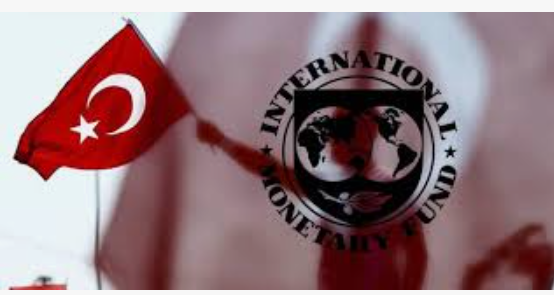IMF staff issued its customary review of Turkish economy and economic policy, which while praising the austerity program, remained very critical of its gradual nature, advising prolonged “tight financial conditions” and “fiscal consolidation” synonyms for “higher for longer” in monetary policy and painful spending cuts in the upcoming 2025 budget.
Progress in austerity praised
“A turnaround in economic policies since mid-2023 tightened Türkiye’s overall policy mix, sharply reducing crisis risks and raising confidence. The current account deficit fell to 2.7 percent of GDP in 2024:Q1, market sentiment improved, international reserves (net of swaps and other liabilities) increased by US$91 billion since April, international credit agencies upgraded Türkiye’s sovereign risk rating, and CDS spreads have declined nearly 440 bp since mid-2023. Headline inflation has started easing in the summer, but it remains high. The financial and corporate sectors have so far weathered liberalization and policy tightening without visible stress.”
But, the costs of the belt-tightening were also highlighted:
Tight monetary and incomes policies will weigh on domestic demand, bringing 2024 growth to around 3.4 percent. Despite favorable base effects, still-strong inertia would keep inflation at around 43 percent (y/y) at end-December. On the external front, the current account deficit would continue to fall to around 2.2 percent of GDP. In 2025, with fiscal policy expected to turn contractionary and real policy rates remaining positive, growth would further moderate to 2.7 percent, and inflation fall to around 24 percent. In the medium term, a further drop in inflation would boost confidence, and growth would rise back toward potential of 3.5-4 percent. Export growth would keep the current account deficit around 2 percent, and international reserves would stay above 100 percent of the IMF’s reserve adequacy metric.”
Note that on the positive side IMF is signaling default risk for Turkey is low on account of strong reserve build-up, but its 2025 inflation forecast is 10 percentage points higher than that of the Central Bank.
And, here come the veiled jabs at economic policy
“While the authorities’ gradual approach to fighting inflation aims to limit the impact on growth, it bears downside risks. It prolongs the period during which risks and shocks that could derail disinflation might occur, such as higher global energy prices, geopolitical tensions arising from the conflict in the middle east or the war in Ukraine, or a reversal of capital flows
Policy recommendations promise further pain:
“A tighter policy mix, focused on fiscal policy, would reduce risks and bring inflation down more quickly and sustainably. Fiscal, monetary, and incomes policies will all need to work together. While there would be a short-term cost to growth from tighter policies, a rapid disinflation is more likely to be sustainable, and would strengthen medium-term growth and financial stability.”
Taken together, and front loaded to the extent possible, measures amounting to around 2.5 percent of GDP would better calibrate the fiscal impulse over 2024-2025 to support the disinflation effort.
The tight monetary policy stance will need to be kept until headline inflation and inflation expectations fall to the CBRT’s forecast range. Financial conditions will tighten as inflation expectations continue to fall, but should sequential inflation not continue to fall toward a path consistent with the end-2025 target range, additional tightening might be called for.
Setting prices, wages, and other contracts (such as rents) annually and according to forward-looking inflation is key to resetting expectations and protecting competitiveness. Once relative prices have adjusted, any backward-looking indexation should be eliminated, and public sector administered prices aligned with production and maintenance costs.”
In other words, the annual minimum wage, pension and civil services pay ought to be hiked by forecasted inflation, not to compensate recipients for accumulated inflation of 2024. If followed, this recommendation will elicit howls of protest from low and middle income classes.
Nevertheless, it is a credit to Mehmet Simsek that he allowed the report to be published despite its no-nonsense recommendation amounting to “No pain, no gain”.
To read the full report, click the link here
Follow our English language YouTube videos @ REAL TURKEY: https://www.youtube.com/channel/UCKpFJB4GFiNkhmpVZQ_d9Rg
And content at Twitter: @AtillaEng
Facebook: Real Turkey Channel: https://www.facebook.com/realturkeychannel/
